Key takeaways:
- Start grant writing by understanding funder requirements and adapting proposals to their goals.
- Utilize research and networking to discover suitable grant opportunities and tailor applications effectively.
- Build partnerships and seek feedback to enhance the credibility and clarity of proposals.
- Ensure successful grant management through organization, detailed planning, and regular communication with stakeholders.
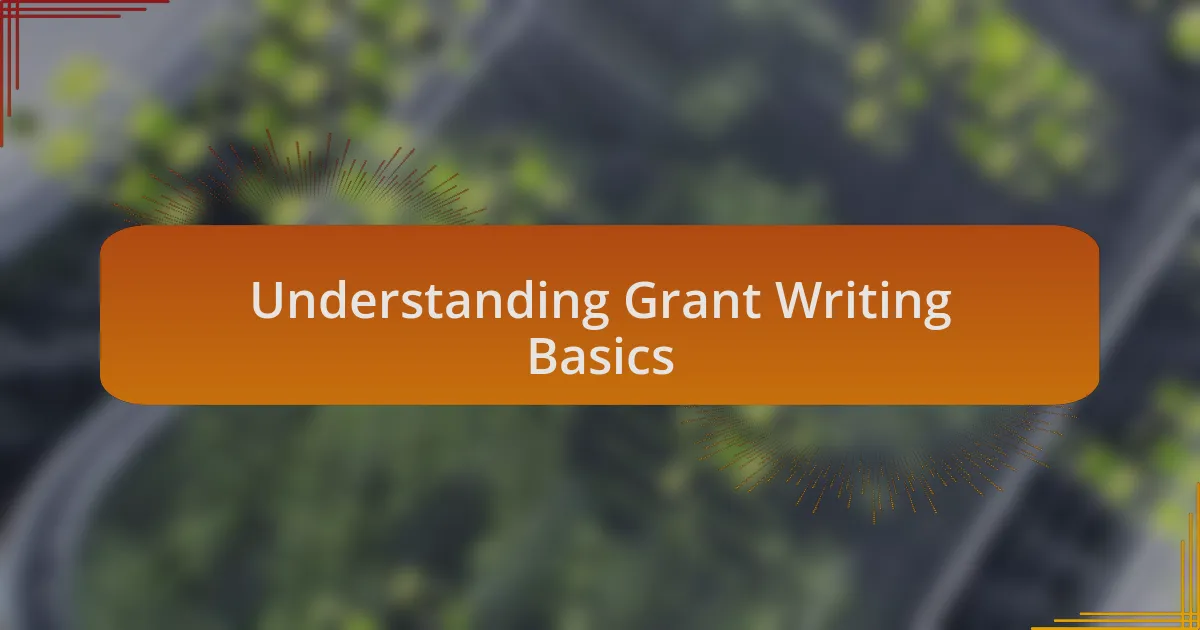
Understanding Grant Writing Basics
Grant writing may seem daunting at first, but breaking it down into manageable steps can make the process much easier. I remember sitting down with a blank page, feeling overwhelmed, and then realizing that the key was to start with a clear understanding of the funder’s requirements. Does that resonate with you? It really helps to see the prompt as a roadmap rather than a wall.
Understanding the specific components of a grant proposal is crucial. I’ve found that a compelling narrative combined with clear objectives is essential for capturing attention. This dual focus helps not just to inform but to inspire funders with your vision. Have you ever connected with someone over a shared goal? That’s exactly what you want to achieve in your proposal.
Another aspect that’s often overlooked is the importance of research. Knowing the funder’s priorities can transform your proposal into a tailored pitch rather than a generic application. I vividly recall the time I spent digging into past funded projects; it allowed me to speak their language and align my goals with theirs. How often do we think about those connections, and how they can refine our approach?
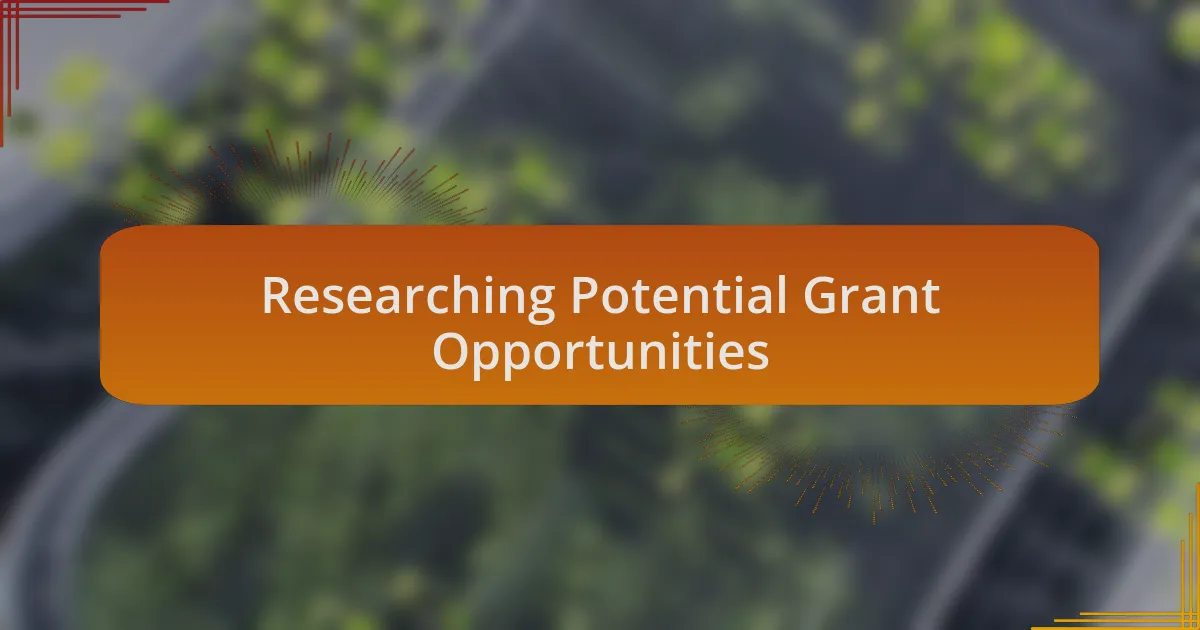
Researching Potential Grant Opportunities
When I dive into researching potential grant opportunities, I always start with a targeted approach. I’ll spend hours browsing databases like Grants.gov or Foundation Center, looking for funders whose missions resonate with my project. It’s like searching for a perfect partner; finding alignment can make all the difference. Have you felt that rush when stumbling upon an opportunity that feels like it was designed just for you?
Using keywords related to your project is essential in this phase. I remember a time when I overlooked key terms and missed out on several relevant grants. Once I fine-tuned my search, the floodgates opened, and I discovered a wealth of opportunities. This experience taught me that a little patience and creativity in keyword selection can yield incredible results. What specific keywords could elevate your research?
Don’t underestimate the value of networking during your research. I often reach out to colleagues or mentors who have successfully secured funding. Their insights can lead you to hidden gems—grants that may not be widely advertised. It’s impressive how a simple conversation can guide you toward opportunities you might never find on your own. Have you tapped into your network in this way?
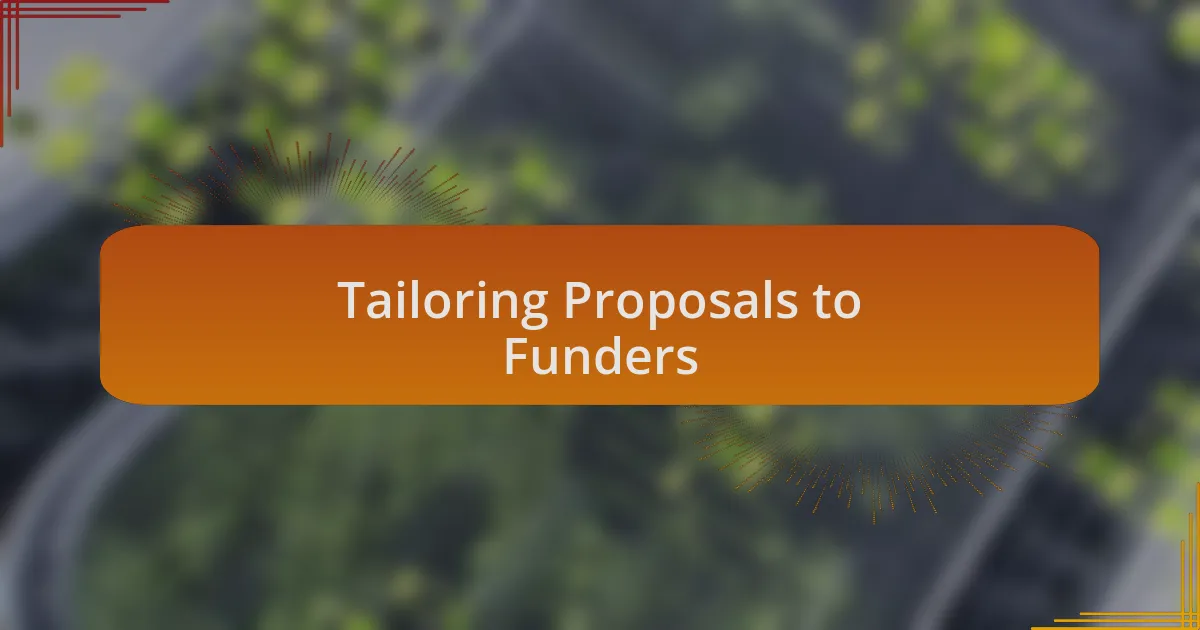
Tailoring Proposals to Funders
When crafting proposals, I always make sure to align my narrative with the specific goals and values of the funders. One time, I tailored a proposal to emphasize sustainability after noticing that a particular funder prioritized environmental impact. The response was overwhelmingly positive, reinforcing my belief that understanding a funder’s priorities is a game changer. Have you ever considered how your project aligns or diverges from a funder’s mission?
It’s crucial to adjust not only the content but also the tone of your proposal. I recall a grant application where I adopted a more formal, data-driven approach to meet a funder’s expectations, and it paid off. That experience taught me that matching the funder’s preferred style can significantly enhance how your proposal is received. Have you thought about how the way you communicate could shape a funder’s impression?
Finally, I often revisit the funder’s past grants and their feedback on previous applications. This approach has helped me refine my proposals to better suit their preferences. One funder once mentioned a desire for more community engagement in their projects, so I highlighted my community outreach efforts in my next submission. It’s amazing how a little adaptation can turn a good proposal into a great one. What feedback have you gathered that could boost your proposal’s effectiveness?
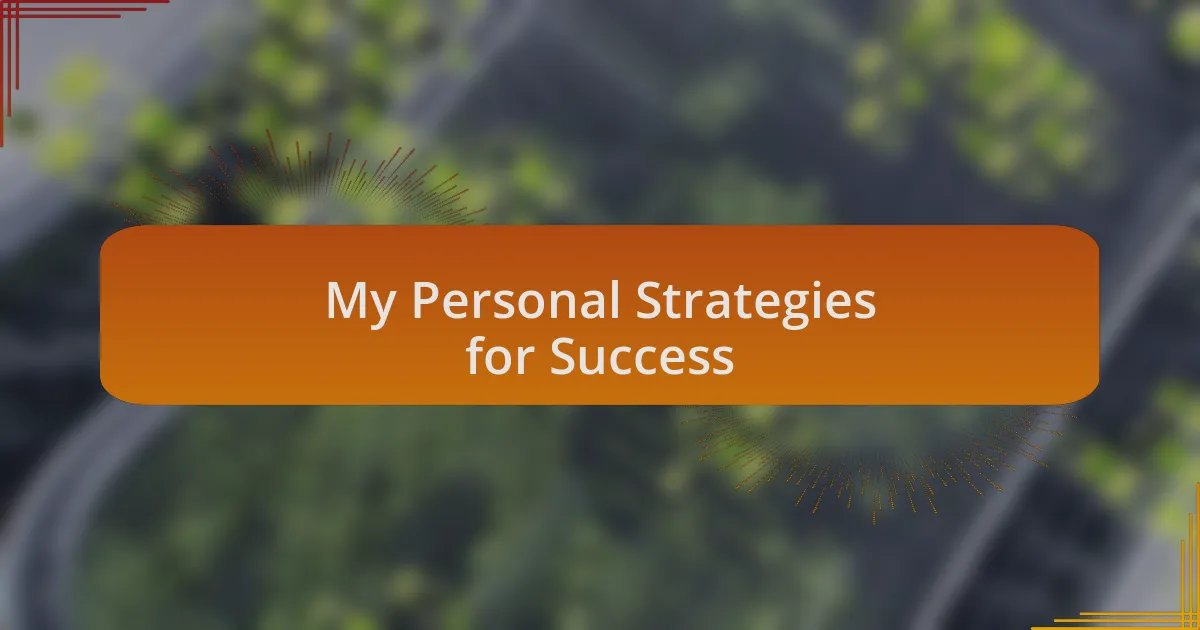
My Personal Strategies for Success
When it comes to grant writing, I prioritize a clear and compelling narrative. I remember a proposal I submitted, where I wove a personal story into the fabric of the project—sharing how my own experiences sparked the initiative. This not only humanized my work but also resonated with the review committee, making my project feel relatable. Have you considered how sharing your journey could strengthen your proposal?
Another strategy I employ is building partnerships before the application process. For instance, in one project, I reached out to local organizations to collaborate, aligning our goals. This not only added depth to my proposal, but it also showcased community support and enhanced credibility. How often do you think about involving others in your mission before you even begin writing?
Lastly, I find it invaluable to seek feedback from peers on my drafts. There was a time when I hesitated to ask for help, thinking my ideas were solid enough. However, I was surprised by the constructive criticism I received, which highlighted areas for clarity and persuasion that I had overlooked. I learned that collaboration can illuminate blind spots—have you ever sought insights from others to refine your proposals?
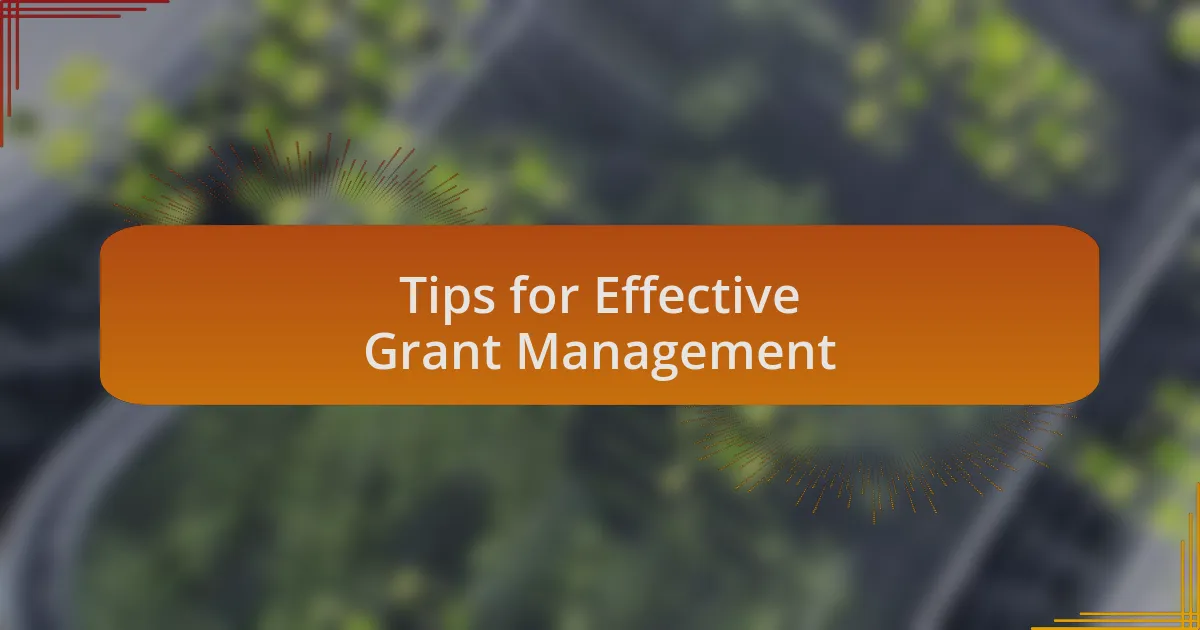
Tips for Effective Grant Management
Effective grant management is a crucial part of ensuring your project stays on track. I recall a project where I created a detailed timeline for each grant milestone, which kept my team focused and accountable. Have you ever felt overwhelmed by deadlines? A well-structured plan can alleviate that stress tremendously.
Staying organized is key for managing finances tied to grants. In one instance, I started utilizing a dedicated spreadsheet to track expenses against the budget outlined in my proposal. This not only provided clarity for my team but also prepared me for grant audits. Does the thought of managing grant funds make you anxious? With the right tools, you can bring order to the chaos.
Regular communication with stakeholders can make all the difference. During a challenging phase of one of my projects, I made it a point to hold monthly check-ins with partners and staff. These conversations fostered collaboration and helped identify potential issues early. Have you thought about how consistent updates can strengthen relationships and keep everyone aligned?